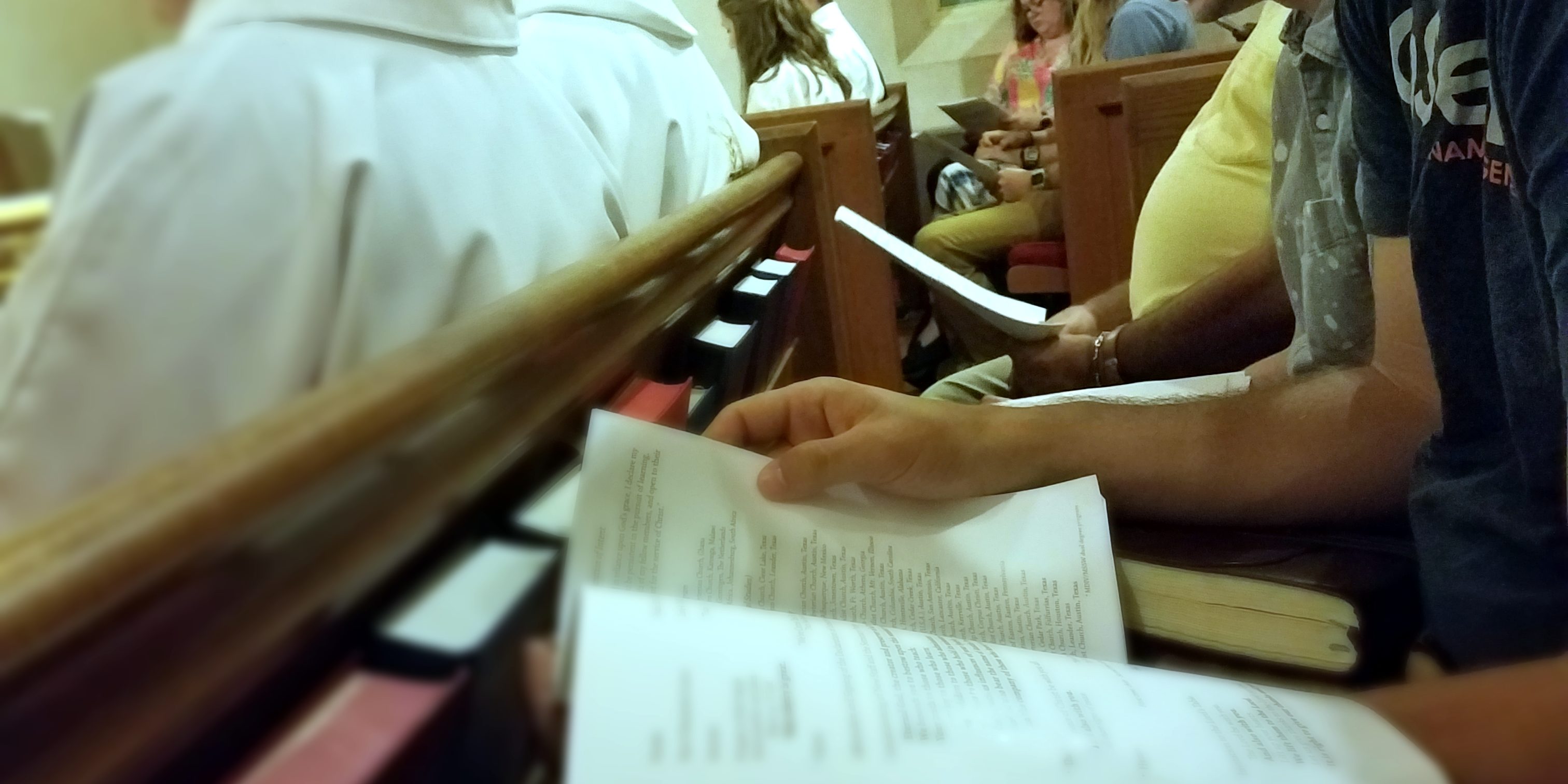“I think people often come to the synagogue, the mosque, the church looking for God, and what we give them is religion, and I think that is a huge mistake. And sometimes we let our fussing around with the institution get in the way of what people came for, which is help in facilitating their access and relationship with God.”[1]
I remember hearing this quote from a Fresh Air interview with Bishop Gene Robinson when it first aired way back in 2013 and being eagerly in agreement with his words. I was rebounding from a bad breakup with a church I had attended for nearly fifteen years and was making my way back into church again after some time away. I had many of these same feelings about church – I was tired of the religion but still desired worship in community.
I ventured out of my comfort zone to the local Presbyterian church, and, to my surprise, the look and feel of worship was familiar to my previous (non-denominational) experience. The leadership wore regular clothes, a praise/worship team led the music with drums and guitars, and we worshiped communally.
I found what I was seeking in this church. In this group of imperfect people I found a community who came as they were to worship God. The music wasn’t always exact, the pastors occasionally flubbed their sermons, the congregation didn’t always read in unison, and the ushers sometimes forgot to greet visitors. But they all admitted their imperfections and worked at making worship better. It was an honest house of worship and an authentic community – it was good church.
When I attended my first Presbyterian service in Austin, I was a bit perplexed by what I experienced. The leadership wore robes, the music was accompanied solely by the organ and we sang EVERY verse to EVERY song, there was confession…and profession…and public prayer…and communal reading. The service was ‘high-church’ with plenty of liturgy, order, and staidness – not the Presbyterianism I had known.
As different as this worship service was for me, it was just that – different. It wasn’t wrong, it wasn’t improper, it wasn’t displeasing to God. The stylistic differences in worship between these two churches didn’t negate the things that kept me coming back: I found places where I could worship God and places where I belonged. I found congregations that were true to who they were and didn’t try to be something they weren’t.
Worship can be a tricky thing for leaders to plan and do: how do we do it faithfully? How do we do it according to our denominational standards? How do we make it pleasing to God? How do we maintain the religion and give people space to access God?
While the ‘things’ that we do in church are important, we get into trouble when we make them more important than why we do them. The main reason why people go to church (or synagogue, mosque, or other house of worship) is to feel closer to God,[2] and those of us working in the church should make this movement toward God as accessible as possible.
My suggestion is
this: be the best church you can be, and be authentic in your worship. If your worship is more traditional, you don’t
have to be like the church down the street that has the rockin’ worship band. If your worship is more contemporary, you
don’t have to venture down the high-liturgy path. Don’t try to be a church that you’re
not. Do what you do well. Do what you do honestly. Do what you do authentically and make space
for your congregation to access and be in relationship with their Creator.
[1] Terry Gross, “Retired Bishop Gene Robinson On Being Gay And Loving God,” last modified January 10, 2013, https://www.npr.org/templates/transcript/transcript.php?storyId=169066917
[2] Pew Research Center, “Why Americans Go (and Don’t Go) to Religious Services.” August 1, 2018. http://www.pewforum.org/2018/08/01/why-americans-go-to-religious-services/
Guest blogger this week is Austin Seminary student, Sheth LaRue. He is in his second year at the seminary and loves to write. He is the editor of our student newsletter Kairos. If you’d like to read more of his work, his blog can be found here.







